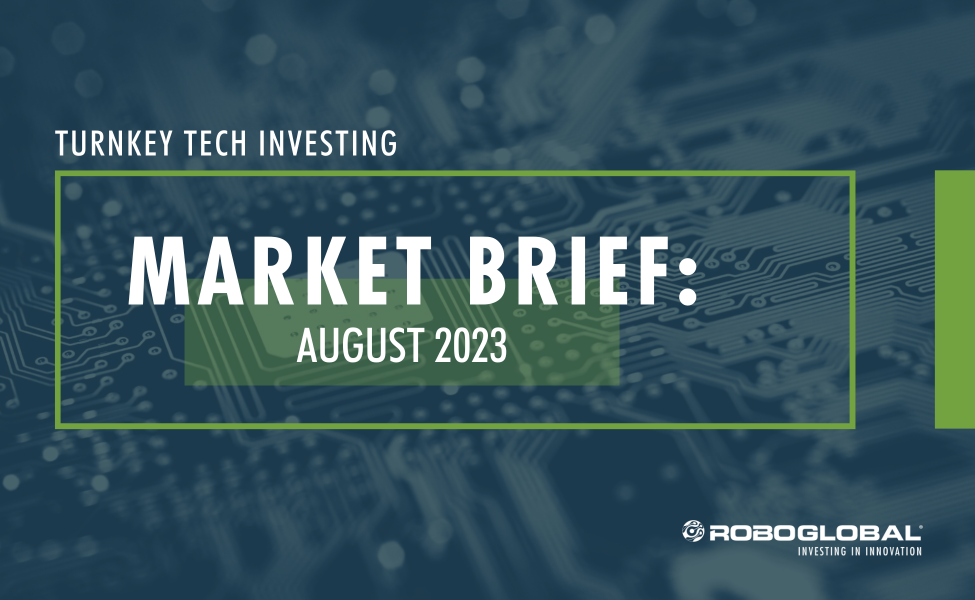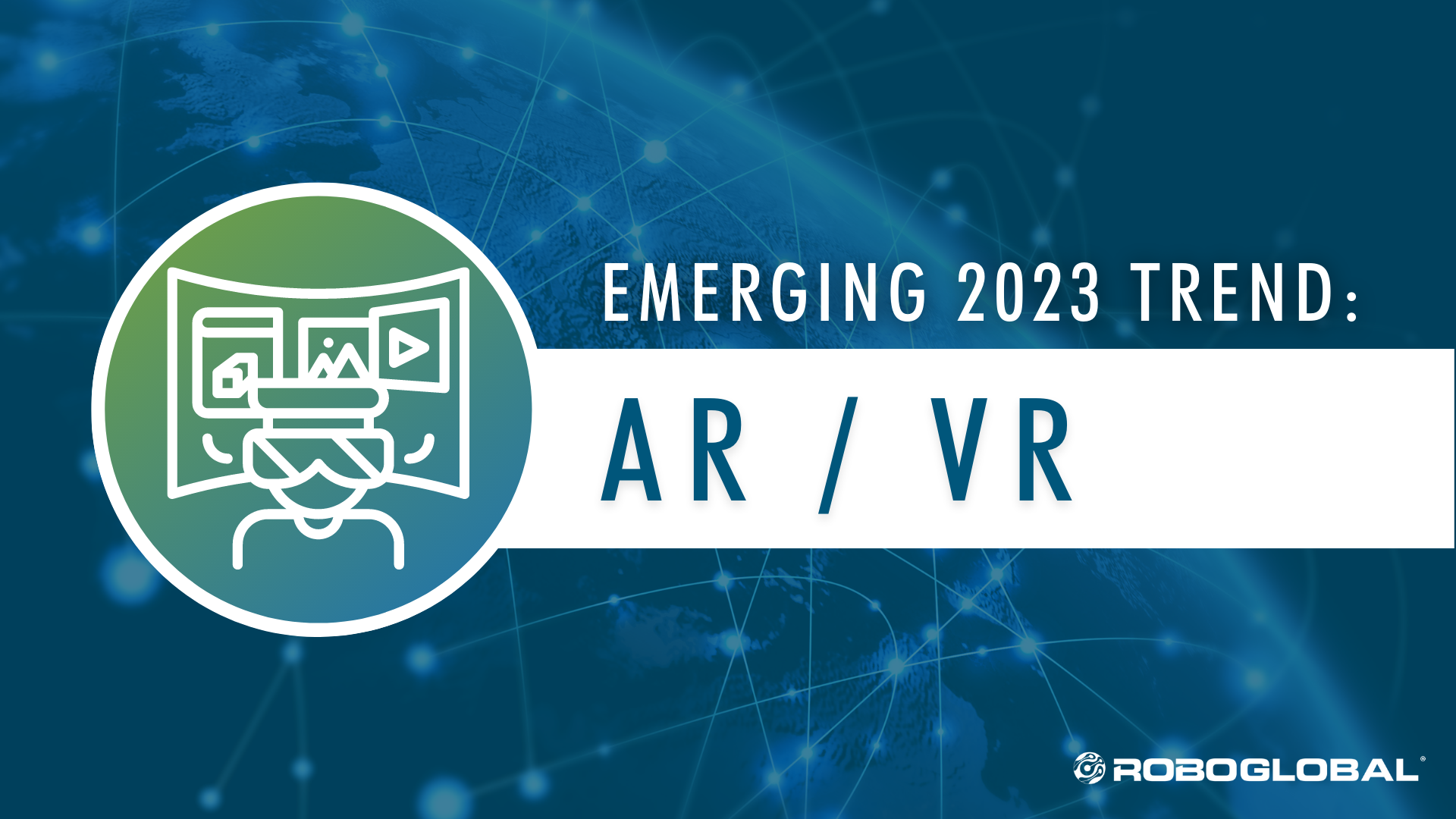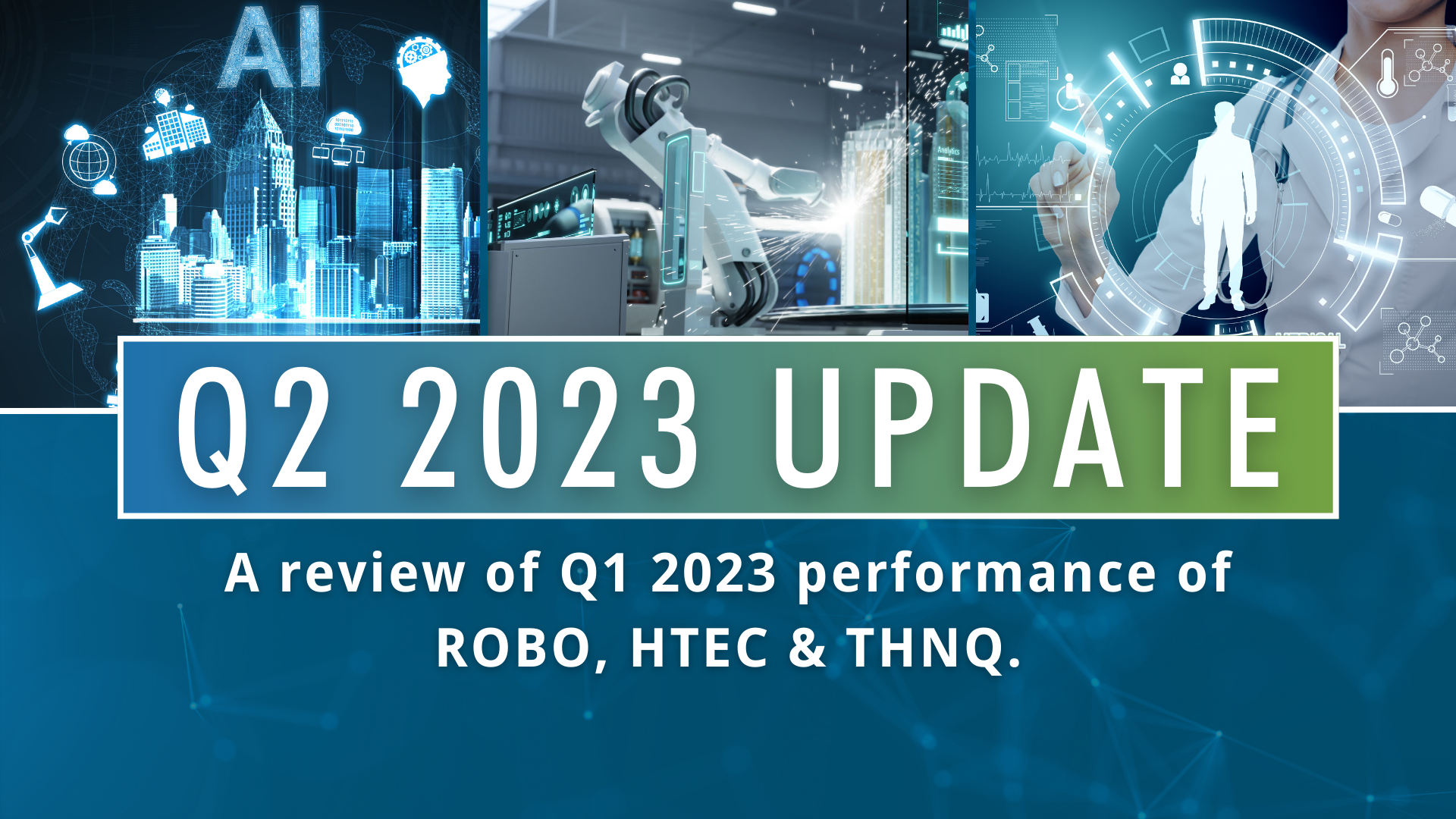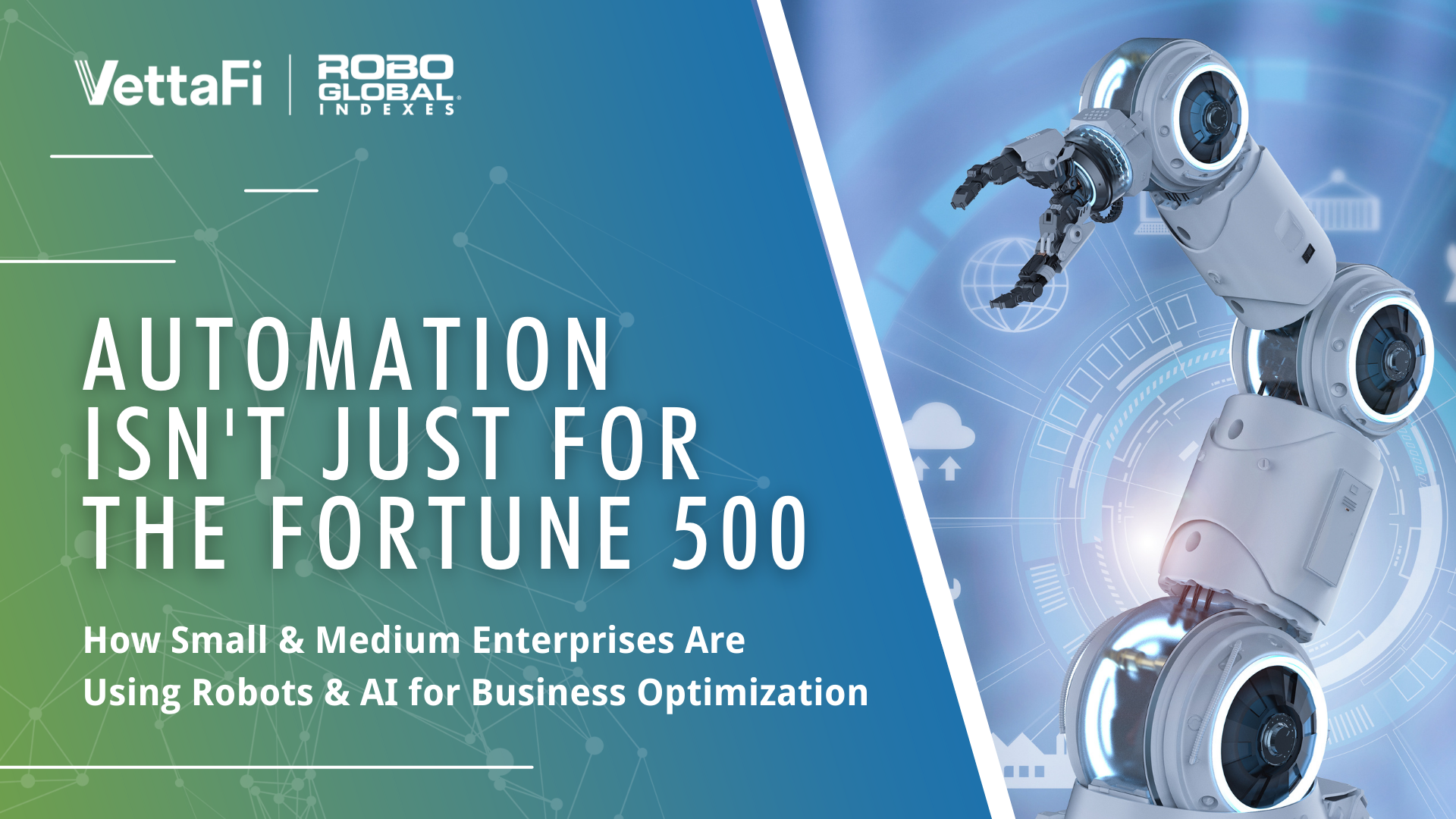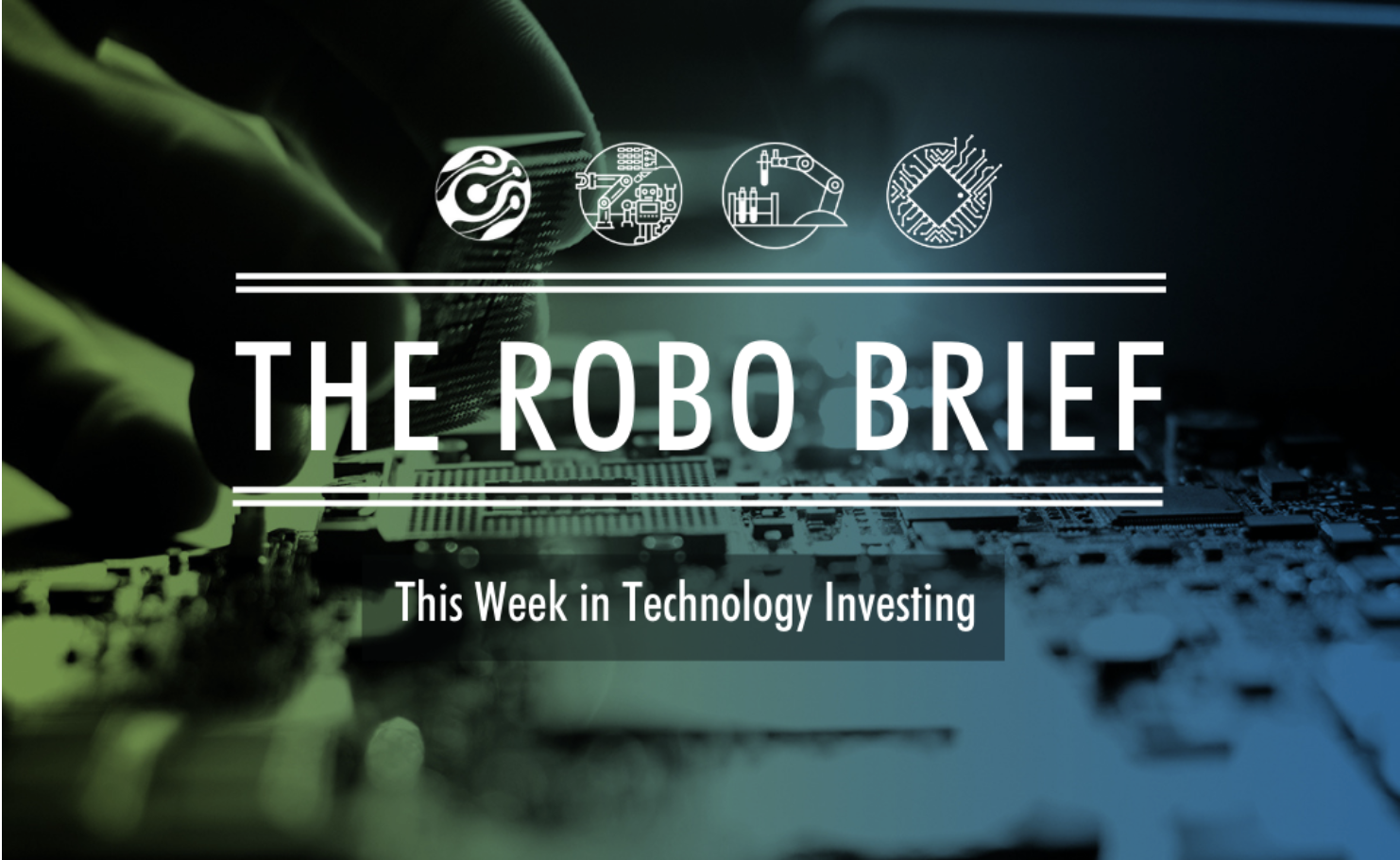This week, we discuss Brooks Automation's mind-blowing returns, how Natera is using AI to analyze its genetic testing data, and why Varonis Systems is seeing such strong growth. We also have a webinar covering M&A activity across disruptive technology on Wednesday, Feb. 24 at 10am CT which you can register for here.
Please enjoy these insights from our research team.
Brooks Automation Shows Stunning Returns
Brooks Automation, the leading provider of automation solutions for semiconductor manufacturing and life sciences, continues to deliver stunning returns. Its share price has more than doubled in the past twelve months and octupled – yes, an eight-bagger – since its inclusion in ROBO in 2014. Brooks made its name as one the world’s top suppliers of automation equipment for the semiconductor industry with especially strong positions in silicon wafer-handling robots and contamination control, a highly profitable business generating over $500 million in annual revenue today.
Nearly ten years ago, management embarked on a bold move to develop automation solutions for the life sciences industry, starting off with its cryogenic technology. With a combination of smart acquisitions and aggressive organic investments, Brooks has quickly created a global one-stop shop for bio sample storage and management using robotics and automation. In another bold move, Brooks acquired Genewiz, a global provider of genomics services, in 2018.
It seems Brooks’ intense focus on life sciences couldn’t have been better timed. Its comprehensive end-to-end solutions for sample management and genomics are vital to the success of some of today’s most exciting healthcare technologies, such as cell-based therapy, regenerative medicine, molecular diagnostics, genomic analysis, and more. In Q4, its Life Sciences business grew 36% YoY and represented 47% of revenues. The company added more than 400 new customers and saw strength in its Genewiz offerings (synthesis, Sanger sequencing, and next-generation sequencing), while its bio sample management business saw strong growth and momentum from COVID-related samples (vaccine and testing) storage.
Natera’s Using AI to Detect Chromosomal Diseases
Investors are always asking for examples of how healthcare tech companies use AI, so this week we are highlighting Natera, an HTEC member that recently published data that reaffirms its market and technology leadership in genetic testing. At the SMFM Annual Pregnancy Meeting last week, Natera presented results from its SMART study, the largest prospective multisite study ever performed for noninvasive prenatal testing (NIPT), with over 18,000 patients. In this study they validated their new AI-based algorithm, Panorama AI, which utilizes data from over 2 million NIPT tests performed by Natera. The company found that Panorama AI maintained its high sensitivity levels and even detected more chromosomal abnormalities than its older-generation Panorama platform. This is important, because it indicates that their use of AI could catch something critical that may have otherwise been missed.
Natera’s study also found a higher-than-expected prevalence of microdeletions, or very rare chromosomal disorders. To put it simply, this is a test that is often added on to the more common prenatal genetic test ordered by doctors, to screen for more diseases. Until recently, microdeletion disorders were thought of as very rare, and therefore are not widely covered by insurance. However, this study showed that certain disorders are more prevalent than expected, like DiGeorge Syndrome, which appeared in 1/1500 samples, and often takes five years to diagnose in a child. With evidence of detecting more disorders, we anticipate that microdeletion tests will become an industry standard, and that insurance coverage will follow. This could translate to several hundred million in incremental annual revenue for Natera.
Demand for Data Security Delivers Growth to Varonis Systems
Varonis Systems, a leading security software vendor focused on identifying and protecting valuable data, posted strong results, with revenue growth of +31% driven by massive cloud adoption and digital transformation. Focused on protecting enterprise data, Varonis developed a security software platform that performs user behavior analytics that analyzes and detects threats and cyberattacks. Using machine learning technology as a key enabler, Varonis’s mission is to protect sensitive information for their customers. Varonis has been an index member of THNQ since inception, with shares up over 120% in the past 12 months. In that time period, Varonis has delivered double-digit revenue growth and demonstrated its operating leverage by posting a 15% operating margin in the most recent quarter, compared to a negative operating margin just a year ago.
Even before the pandemic hit, organizations quickly realized the remote workforce was accessing sensitive data on-premise as well as in the cloud, exposing them to heightened risks. These risks were exacerbated by the pandemic as organizations accelerated its migration to the cloud and implemented various collaboration software for productivity enhancements.
Most recently, Varonis has extended its AI capabilities with the acquisition of Polyrize, which enables IT security teams to control access to cloud data and analyze cloud activity across remote applications and services. Built by experts in cyber intelligence from Israel Defense Forces, Polyrize leverages an AI engine to identify and provide user permissions across any cloud services. Varonis currently partners with almost all of the top cloud service providers, driven by its best-in-class data security platform with its keen focus on artificial intelligence and data protection. This differentiated strategy versus traditional cybersecurity providers should allow Varonis to continue its momentum over the coming quarters.

